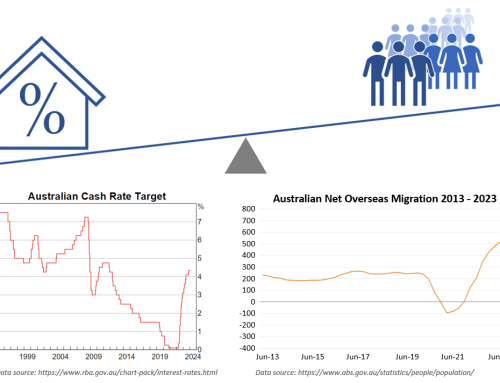10 strategies to recession-proof your business

An Australian Recession: not a matter of if, but when (and how bad?)
The world’s financial experts have been banging the (dol)drums louder and louder, warning of a US recession by 2020. And Australian economists* predict that we could see that downturn here a little earlier. We’ve enjoyed almost 30 years of continuous growth in this country, but global and local trends point to the tides turning in the Australian economy. This slow-down could become a ‘downturn’ without too much trouble.
An Australian recession isn’t all bad news for businesses…
The ‘R word’ strikes fear in the hearts of every business owner and that’s understandable… but let me provide another ‘R word’ for you: resilience. As one of Australia’s longest-standing business coaching firms, we coached businesses through the Global Financial Crisis of 2008 (the GFC). We know from first-hand experience what it takes for small and medium businesses in Australia to survive the tough times. Armed with the right information and strategies, small business owners may even be able to leverage a couple of recession-related opportunities.
To quote the world’s greatest investor, Warren Buffett: “It’s only when the tide goes out that you discover who’s been swimming naked.”
Now’s the time to put on the wetsuit and protect your business from the looming economic low-tide.
A bigger piece of the pie
A recession means that your competitors are all paddling up the same proverbial creek – only their boat may be leaky. If you take measures to recession-proof your business, you might be able to gain some of your competitors’ market share. If a stronger position has given you better pricing flexibility, you may be able to make their customers and clients yours.
Recession-proofing your small business starts now!
Rather than anxiously waiting for the downturn to hit and start wreaking havoc, small business owners should be thinking and acting like it’s already here. While you can’t stop a recession affecting your business, there are smart strategies you can use to soften the blow.
What can you do to recession-proof your small business?
The team of business coaches at Tenfold mentor owners of businesses in many industry sectors, including trades, manufacturing, retail, allied health, professional services and we know which strategies actually work:
Strategy 1: Protect your cash flow
Start by taking your business’ financial pulse: are you flush with funds or swimming in debt? Consider meeting with a business expert to see where you can tighten up your budget or renegotiate terms with suppliers to make sure every dollar is working for you and not against you.
Don’t bank on the banks for finance. Credit is already scarce from mainstream lenders so don’t expect to be able to easily access money on short notice – the tap has been turned off for funding small business. You need to manage your cash flow carefully.
(For more tips on managing cashflow see our 4 Essential Cash Tips for any SME
Strategy 2: Keep costs variable
With a recession on the horizon, think carefully – very carefully! – before locking yourself into long-term financial agreements or assets. This includes commercial leases, office fit outs, vehicle acquisitions (whether under finance or from your own business cash reserves), large stock orders or other forward commitments. These are common, and often necessary, investments when growing your business. The challenge for a small business to survive an economic downturn is to remain financially flexible so you can drop costs quickly as needed. There are still ways to grow if you have the right strategies and financial models that can be tested against different scenarios.
Strategy 3: Switch to a more flexible workforce model
During past recessions, some companies have offered their employees reduced or part time hours, rather than being forced to retrench them. This not only kept their staff employed, it also left the business in the position of being able to increase staff hours as things improved. Another option might be to outsource. Engaging contractors or freelance services to handle some functions can allow you to reduce or eliminate those labour costs quickly if need be.
Strategy 4: Fatten up your emergency fund
Putting aside some ‘rainy day’ cash is a fundamental part of running a successful small business – you can count on needing an umbrella at some point. In a recession you will sleep easier knowing that you can cover expenses and employee salaries during slower periods. In an ideal world you would have six months’ worth of liquid cash available but fattening up your savings as much as you can will at least see you through the leaner times for longer.
Strategy 5: Get lean (processes)
While you are working on fattening up your savings account, work on trimming your processes for optimal operational efficiency. This isn’t about cutting corners or being cheap. The idea is to find a sweet-spot where you are delivering the most value to your customers using the least resources.
A good example of this is inventory. You should aim to strike a balance between having enough stock on hand to meet customer demand, while also making sure your assets don’t end up languishing in a warehouse. In this case, fine tuning your forecasting or investing in some inventory management software could be the answer to better aligning supply with demand.
Strategy 6: Diversify your customer base
We know from our experience coaching businesses in tough economic times that different industries are hit in different ways. Non-essential industries (such as leisure travel, entertainment and luxury items) are likely to take more of a beating than more essential ones (like health, education or construction).
If you decide to branch out into a less vulnerable market (such as servicing aged care, pharma), be sure to do your research: identify the opportunities and carefully align your offering with your new target market’s needs for increased chances of success.
[NB: Timing is everything; this strategy is best employed well before a recession hits, because diversification requires a significant investment in product development, marketing and building relationships with clients and suppliers.]Strategy 7: Focus on core competencies
Outshining your competitors on product quality and customer service is an ‘all weather’ strategy, but it’s a particularly smart move during a stormy economy. Determine the most profitable products or services that your business offers and find ways to continuously improve them. A laser-like focus on meeting your customer and client needs will be a better investment than new product lines or diversification strategies once a recession is in full swing.
Strategy 8: Stay responsive and decisive
Flexibility towards change and an ability to make informed but fast decisions will beat inaction every time – particularly when economic environments shift. If you spot an opportunity to gain customers or increase your offering to existing ones, then act. Of course, you should always do your research: this is not a time to gamble an investment on a one-in-a-million chance. However, you don’t want to be left thinking ‘if only…’.
If you need guidance or reassurance, it can be a good idea to bounce your ideas off your mentor or even seek professional advice.
Strategy 9: Improve team culture (before the storm hits)
During a recession, stress levels are high and morale is often low. This is not the ideal time to address problems with accountability and productivity within your team. Reinforcing the troops during good times helps your staff to work together more effectively in the face of adversity. When the purse strings are tight, you can’t rely on money to incentivise staff. However, there are other non-cash ways to reward and motivate employees that we have successfully implemented in many businesses.
See our guide on building resilience into your team for ideas on creating and leading a positive workplace culture.
Strategy 10: Play the long game
A nation’s economy only needs two financial quarters of negative growth to qualify as a recession. In the lifetime of a business that may just represent a blip on a future graph. Plan for growth over a longer period – 3, 5 or even 10 years.
The rest is with the (economic) gods
The reality is, as a small business owner, most economic factors (for better or worse) are out of your hands. A recession will certainly be a strength test for your business, but preparation is often the difference between barely surviving and thriving. By getting your finances in order, meeting changing customer needs, spotting opportunities and staying flexible, you’ll be amongst those still standing when this downturn takes an upward swing.
*Here’s an interview with Chief Market Strategist from Longview Economics on the recession forecast (h/t Livewire Markets): Australia following Britain’s GFC playbook
Ashley Thomson is the Managing Director of Tenfold Business Coaching and is a multi-award winning business coaching and member of the Global Coaching Hall of Fame. Ashley authored the white paper ‘Increasing profits in uncertain times’ in 2009, referencing the results he had achieved with clients during the height of the GFC. For a copy of the white paper, please contact Tenfold’s office.
—-
Image credit: https://commons.wikimedia.org/wiki/File:Man_in_wetsuit_(Unsplash).jpg
Table of Contents
- An Australian Recession: not a matter of if, but when (and how bad?)
- An Australian recession isn’t all bad news for businesses…
- A bigger piece of the pie
- Recession-proofing your small business starts now!
- What can you do to recession-proof your small business?
Strategy 1: Protect your cash flow
Strategy 2: Keep costs variable
Strategy 3: Switch to a more flexible workforce model
Strategy 4: Fatten up your emergency fund
Strategy 5: Get lean (processes)- Strategy 6: Diversify your customer base
- Strategy 7: Focus on core competencies
Strategy 8: Stay responsive and decisive
Strategy 9: Improve team culture (before the storm hits)- Strategy 10: Play the long game
- The rest is with the (economic) gods
- An Australian Recession: not a matter of if, but when (and how bad?)




